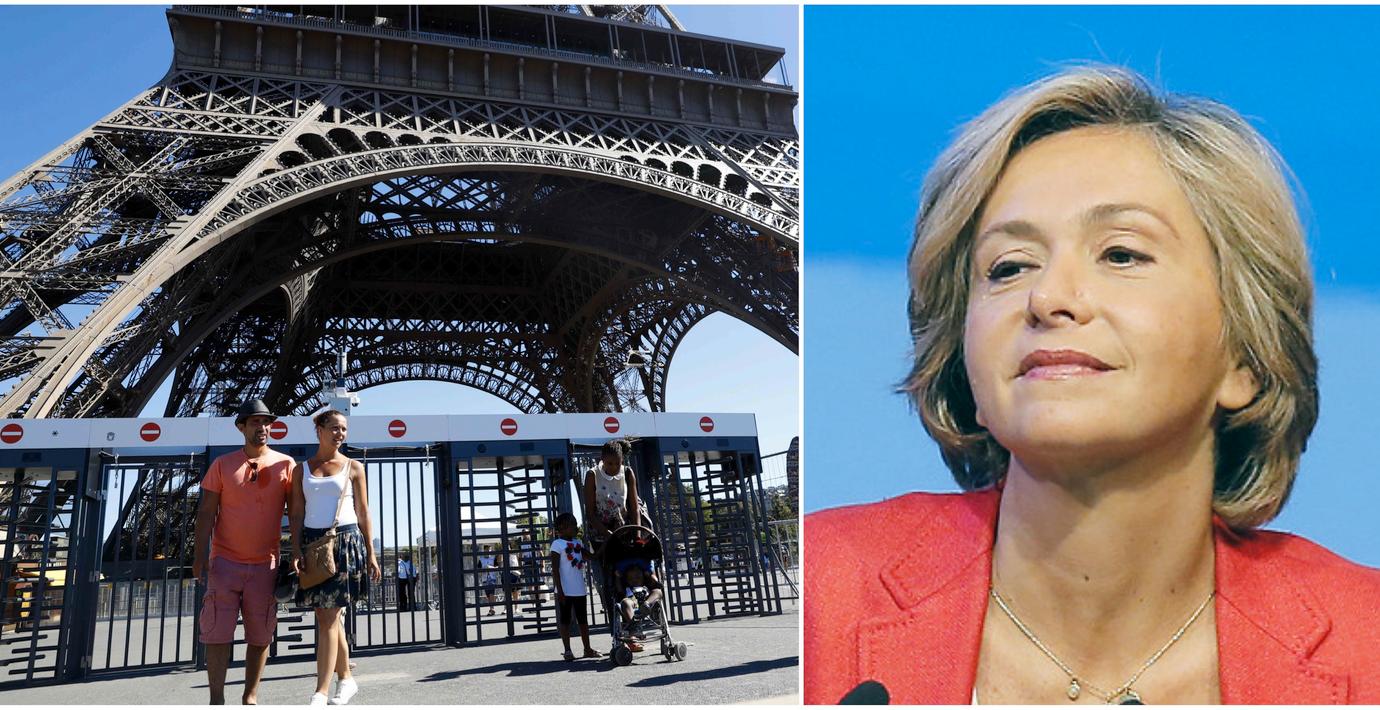
Ska få brittiska företag till Paris – med alla medel
Efter brexit försöker nu Parisregionen kapa åt sig brittiska jobb, skriver Bloomberg. Parispolitikern Valerie Pecresse, 49, jobbar för högtryck.
– Om jag så måste slita åt mig jobben kommer jag att göra det, har hon tidigare sagt.
Storbritanniens beslut att lämna EU uppges ha gett Pecresse en möjlighet att hjälpa de nära 700 000 arbetslösa av Parisregionens tolv miljoner invånare.
bakgrund
Valérie Pécresse
Wikipedia (en)
Valérie Pécresse (French pronunciation: [valeʁi peˈkʁɛs]; born 14 July 1967 in Neuilly-sur-Seine, Hauts-de-Seine) is a French politician. She has been deputy of the Yvelines since 16 May 2002, Minister for Higher Education and Research from 18 May 2007 to June 2011 and Minister of the Budget from then until May 2012. She was also the Government's spokeswoman.
Läs också:
bakgrund
Brittisk ekonomi
Wikipedia (en)
The economy of the United Kingdom is the fifth-largest national economy in the world measured by nominal gross domestic product (GDP) and ninth-largest in the world measured by purchasing power parity (PPP), comprising 4% of world GDP. It is the second-largest in the European Union by both metrics. The UK has been the fastest growing economy in the Group of Seven (G7) for four consecutive years, with 2.2% year-on-year growth in the second quarter (Q2) of 2016.
In 2015 the UK was the eleventh-largest exporter in the world and the sixth-largest importer, and had the second-largest stock of inward foreign direct investment and the second-largest stock of outward foreign direct investment. The UK is one of the world's most globalised economies, and is composed of (in descending order of size) the economies of England, Scotland, Wales and Northern Ireland.
The service sector dominates the UK economy, contributing around 78% of GDP; the financial services industry is particularly important, and London is the world's largest financial centre. Britain's aerospace industry is the second- or third-largest national aerospace industry depending on the method of measurement. Its pharmaceutical industry plays an important role in the economy and the UK has the third-highest share of global pharmaceutical research and development. The automotive industry is also a major employer and exporter. The British economy is boosted by North Sea oil and gas production; its reserves were estimated at 2.9 billion barrels in 2015. There are significant regional variations in prosperity, with South East England and southern Scotland being the richest areas per capita. The size of London's economy makes it the largest city by GDP in Europe.
In the 18th century the UK was the first country to industrialise, and during the 19th century it had a dominant role in the global economy. From the late 19th century the Second Industrial Revolution was also taking place rapidly in the United States and the German Empire; this presented an increasing economic challenge for the UK. The costs of fighting World War I and World War II further weakened the UK's relative position. In the 21st century, however, it remains a great power with global strengths and an influential role in the world economy.
In 2008, the UK entered the Great Recession during the financial crisis of 2007–08, its first for nearly two decades and its longest and deepest recession since World War II. Since 2013, the UK has been in a nascent economic recovery and is firmly in expansion territory. The economy is now (Q1 2016) 7.7% bigger than its pre-crisis peak and 14.8% bigger than its lowest point in 2009. However, the UK's current account deficit is the highest since records began and the highest by GDP in the developed world.
Government involvement in the British economy is primarily exercised by Her Majesty's Treasury, headed by the Chancellor of the Exchequer, and the Department for Business, Innovation and Skills. Since 1979 management of the economy has followed a broadly laissez-faire approach. The Bank of England is the UK's central bank and its Monetary Policy Committee is responsible for setting interest rates.
The currency of the UK is the pound sterling, which is also the world's third-largest reserve currency after the United States dollar and the euro, and also one of the ten most-valued currencies in the world.
The UK is a member of the Commonwealth of Nations, the European Union (although it has voted to leave), the G7, the G8, the G20, the International Monetary Fund, the Organisation for Economic Co-operation and Development, the World Bank, the World Trade Organisation, Asian Infrastructure Investment Bank and the United Nations.
Omni är politiskt obundna och oberoende. Vi strävar efter att ge fler perspektiv på nyheterna. Har du frågor eller synpunkter kring vår rapportering? Kontakta redaktionen